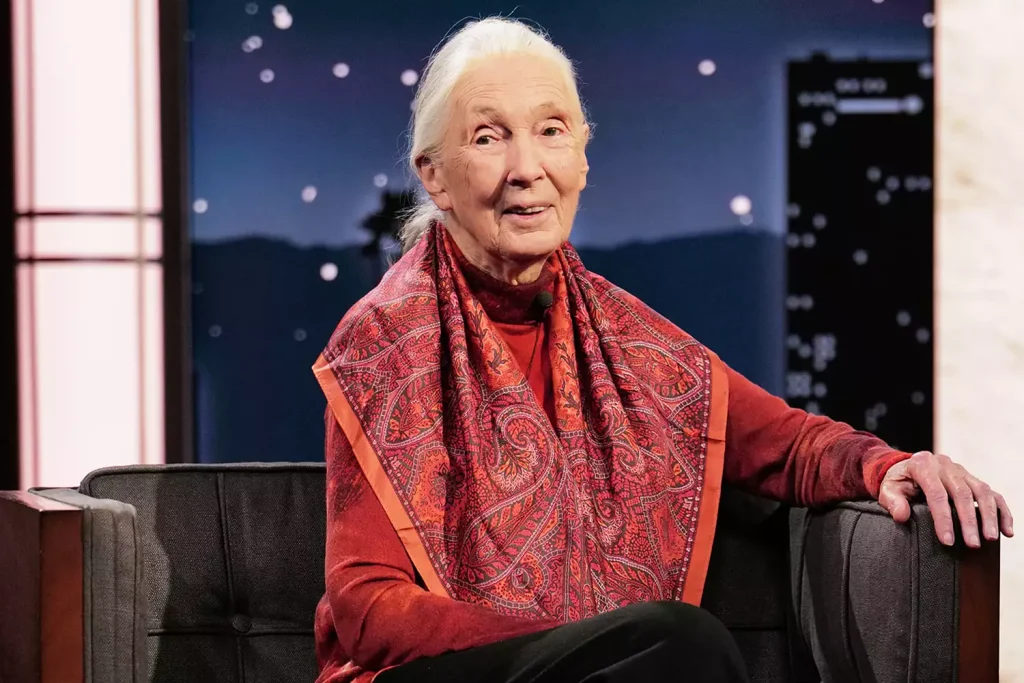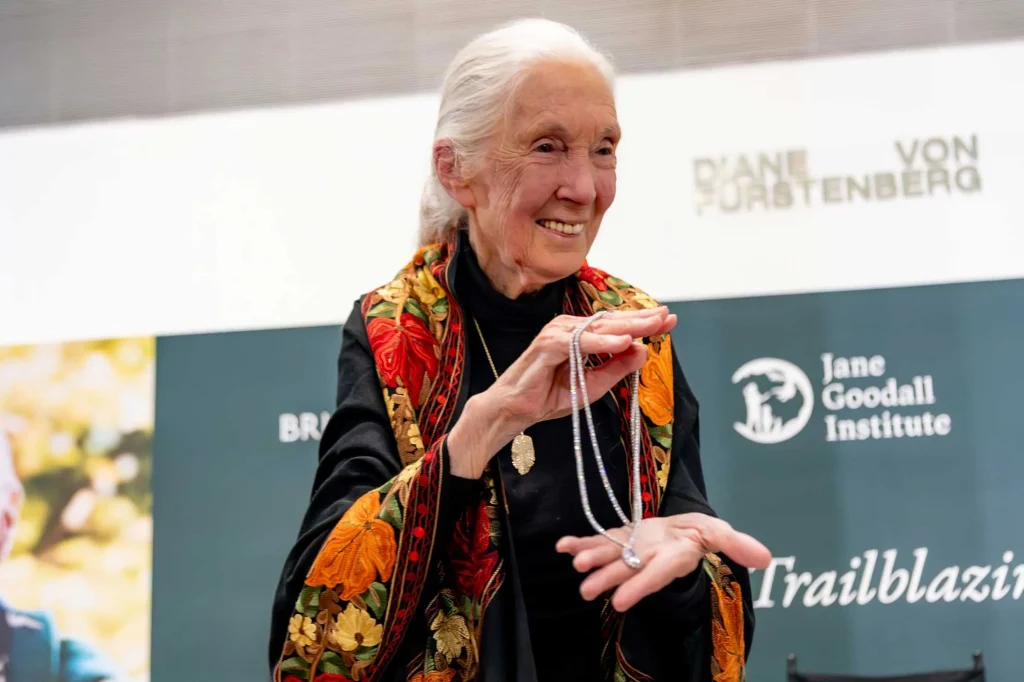How Jane Goodall, the Beloved Conservation Icon, Passed Away Quietly in Her Sleep — What We’ve Learned
I’m writing this with a heavy heart. Earlier this month, the world lost one of its most gentle and powerful voices for the natural world: Jane Goodall. I remember reading about her as a young person and being inspired by someone who didn’t just study animals — she connected with them. Now, as the news comes in about how she left us, I feel both sadness and gratitude for all she gave.

Jane passed away on October 1, 2025, while in Los Angeles on a speaking tour. Her organisation, the Jane Goodall Institute, announced that she died of natural causes. A more recent report cites her official death certificate, via TMZ, stating the cause as cardiac arrest — also called cardiopulmonary arrest — while she was sleeping. At age 91, she had lived a full and groundbreaking life, but the news still shocks and saddens anyone who admired her.
I imagine the words “in her sleep” bring some comfort: no struggle, no dramatic farewell. That peaceful exit feels fitting for someone whose career was defined by quiet observation in the early morning light of the forest in Tanzania, watching chimps and listening. It’s as if she returned — in her final moment — to the calm she so often sought when she traveled across continents to study our primate cousins. Her death certificate’s detail doesn’t overshadow her lifetime of work, but it gives a complete chapter to the story we all followed.
Jane’s journey began modestly: a girl born on April 3, 1934, in London, England, who used to imagine living among animals. She walked into the forests of what is now Tanzania in 1960, age 26, and started living next to chimpanzees at what would become the iconic Gombe Stream National Park. Through her lens the scientific world changed: chimpanzees made and used tools, they ate meat sometimes, they had personalities and emotions. She helped humanity see that we weren’t so different from them.

In her later years, Jane didn’t step back. She lectured widely, founded programmes like Roots & Shoots to empower young people around the world, and campaigned hard for conservation, animal welfare, and climate awareness. To know that this ended while she was still on a speaking tour feels like she lived to the end of her purpose: sharing, learning, urging us on.
When I reflect on her life I think about the image of her, notebook in hand, surrounded by chimps, making notes no one else believed in at the time. I think about her remark that chimpanzees showed love, fear, joy and grief — emotions once thought uniquely human. I think about her message that if one person cares enough to act, it changes things. And now I think about how she left us: in sleep, quietly — a natural closure.
Of course, I also feel the ache of loss. The forests she walked feel emptier. The chimps she watched continue on without their friend on the sidelines. And here on Earth we no longer have her voice live in the room (though her recorded message will live on), reminding us to care. But in the ache there’s hope: hope she would have wanted us to feel. Hope that her legacy — the lives she touched, the forests she helped protect, the young people she inspired — will keep going.
If there’s something I take away from Jane’s passing it’s this: life’s work matters. The quiet work pressed into the dawn. The long hours of observation, of listening. The gentle insistence that animals are more than experiments, more than statistics. The courage to insist on hope even while facing destruction of habitats and species. She modelled it.
So for now: grieve a little. Celebrate a lot. And carry forward what she left behind — the respect for nature, the belief in possibility, the humility before life’s vastness. Jane Goodall is gone from this Earth, but her spirit lingers in the rustle of leaves, the intelligence in a chimp’s eye, and in the heart of every young person who dares to stare at the trees and wonder.



